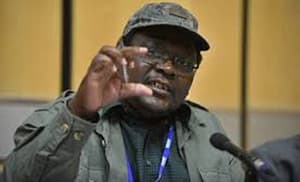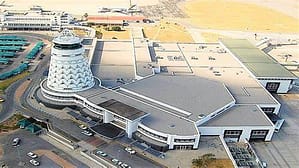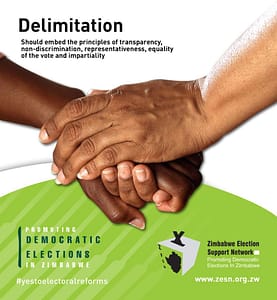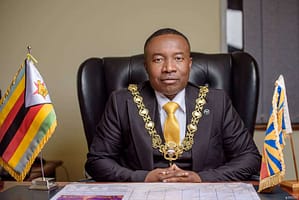When immigration fights meet the politics of deepening divisions in a divided country
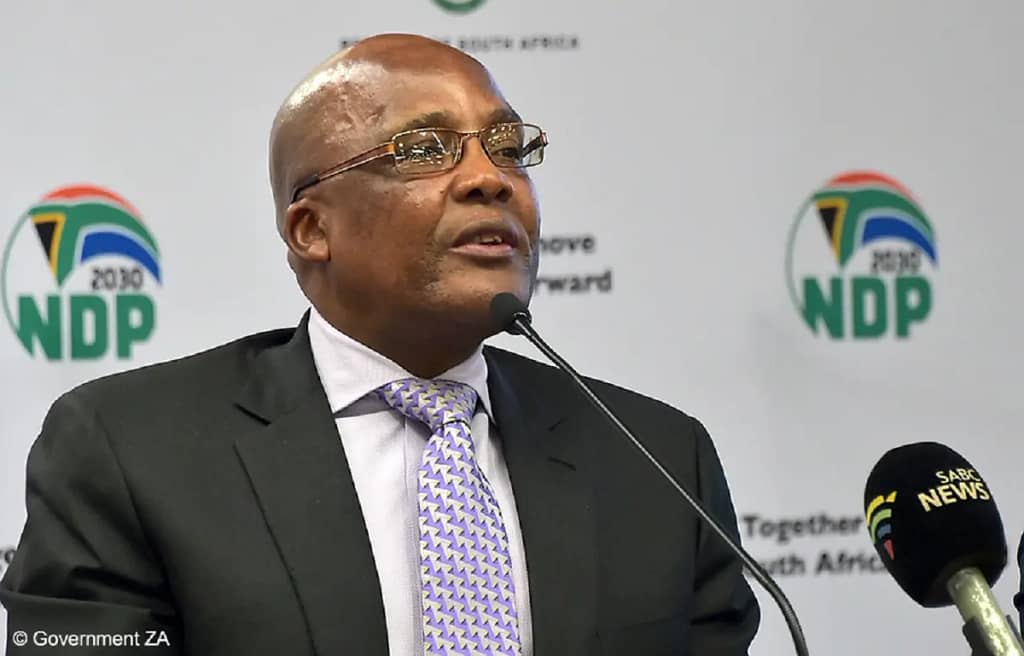
SA Home Affairs Minister Aaron Motsoaledi-
The announcement over the weekend that Home Affairs Minister Dr Aaron Motsoaledi has decided to extend the Zimbabwean Exemption Permits until the end of June 2023 will give us more time for discussion about our policy towards migrants. It also puts in focus, again, the government’s (in)capability to administer/enforce a complex system of visas, waivers and extensions, let alone reconsider the basic humanity of their moves.
But those debates may in fact obscure a bigger contestation taking place beneath the surface in our society, about our identity and identities, and whether individual people who live in our country see themselves as “South African” first and foremost, and whether that excludes their identity as “African” in terms of coming from this continent. This debate may in fact have a bigger impact on political parties and our common future than it has been understood until this point.
On Saturday, the Home Affairs Department confirmed it was extending the Zimbabwean Exemption Permit (ZEP). The official Home Affairs press release says the decision was made by Motsoaledi himself, following advice from the Home Affairs Departmental Advisory Committee.
Key to the decision is the fact that very few ZEP holders have yet applied to remain in the country through other visas.

Meanwhile, there are at least two, possibly three court cases being brought by various organisations to challenge the original decision to end the permit.
While the debate around migrants is about many things, including the Zimbabwean Exemption Permits and health resources, it is also about the idea of ‘pan-Africanism’ and the place of our nation on our continent.
As it is now common practice in South Africa, it is likely that any decision by a court on this issue will be appealed. So high are the stakes (literally hundreds of thousands of people are being told to leave the places where they have lived and worked for the past decade) that it is bound to end in the Constitutional Court.
While Motsoaledi has said expressly that there will be no further extension after June next year, the final decision will be made by a court.
This raises the spectre of constantly shifting deadlines. Instead of the certainty that the ZEP has provided for a decade, Zimbabweans might have to live almost month to month, with certainty gone from their lives. They will be more vulnerable to employers and landlords, the ability to plan their lives shattered.
While the developments around the short-term dynamics of the ZEP are playing themselves out, outside Kalafong Hospital last week another tension was on display.
Members of the Operation Dudula movement were openly confronting people they believed to be foreigners, trying to stop them from entering the facility. The Health Department said Operation Dudula members were basing their decision about people based on “the colour of their skin” or the language they spoke.

Meanwhile, EFF members were confronting Operation Dudula, trying to protect foreigners.
This terrible event presented an open conflict within our society in front of a hospital, an institution that is set up to help, not divide human beings.
Continental identity
While the focus was inevitably on the conflict itself and the images of Operation Dudula burning the EFF’s flag, contained within this is an even deeper debate around our identity and our multiple identities.
In short, while all of us have many different elements to our identity, the importance of which changes depending on the context of the moment, the element of our “Africanness”, of being from this continent, may start to come to the fore.
In other words, there may now be a debate around the importance of our continental identity as opposed to our national identity.
This has been under way for many years in Europe, where there are people who can be members of the same family who may well identify first as “European”, or “British” or even “English”, depending on how they feel about the issue. The same holds true for people from other parts of Europe – you may be “European” first, or “German” first.
Visit www.southafricaobserver.com.au for more news, analysis and investigations
Here, the EFF has said that if someone is black and from Africa, and in South Africa, they are “at home”: the most important element of your identity is that you are “African”, from this continent. They appear to have an inclusive definition: if you are “African”, you are included, no matter who is paying for the healthcare.
Operation Dudula is violently insisting that if you are not South African you do not qualify, barring people from entering, enforcing an identity based on exclusion.
This is an axis of argument and debate which has emerged in different ways in our political discussions over the past 30 years. But it has usually been subdued. While the debate around migrants is about many things, including the ZEP and health resources, it is also about the idea of “pan-Africanism” and the place of our nation on our continent.
While it is clear that the EFF has one clear view, and Operation Dudula another, it is not clear where many other parties sit.
There is evidence of a wide variety of views on this issue within the ANC itself. While Limpopo health MEC Dr Phophi Ramathuba believes it is correct to accost a Zimbabwean receiving treatment in a hospital, Health Minister Dr Joe Phaahla clearly believes she chose the wrong situation in which to express herself.
It may be that in fact within the ANC there are views that are as extreme as those of Operation Dudula and those of the EFF, and that the party may find it hard to reconcile all of these views.
The same may be the case for some other parties, such as the DA.
Of course, this is not the case for organisations like ActionSA and the Patriotic Alliance, who both espouse an “exclusive” definition of South African, and use this in a bid to win votes.
While it is not clear how these debates will play out, it may be that while the issue of migration is one between political parties, it may also become an issue within political parties, new axes of debate, and possibly a new division within them. Just what a country in as serious trouble as South Africa needs right now. DM
